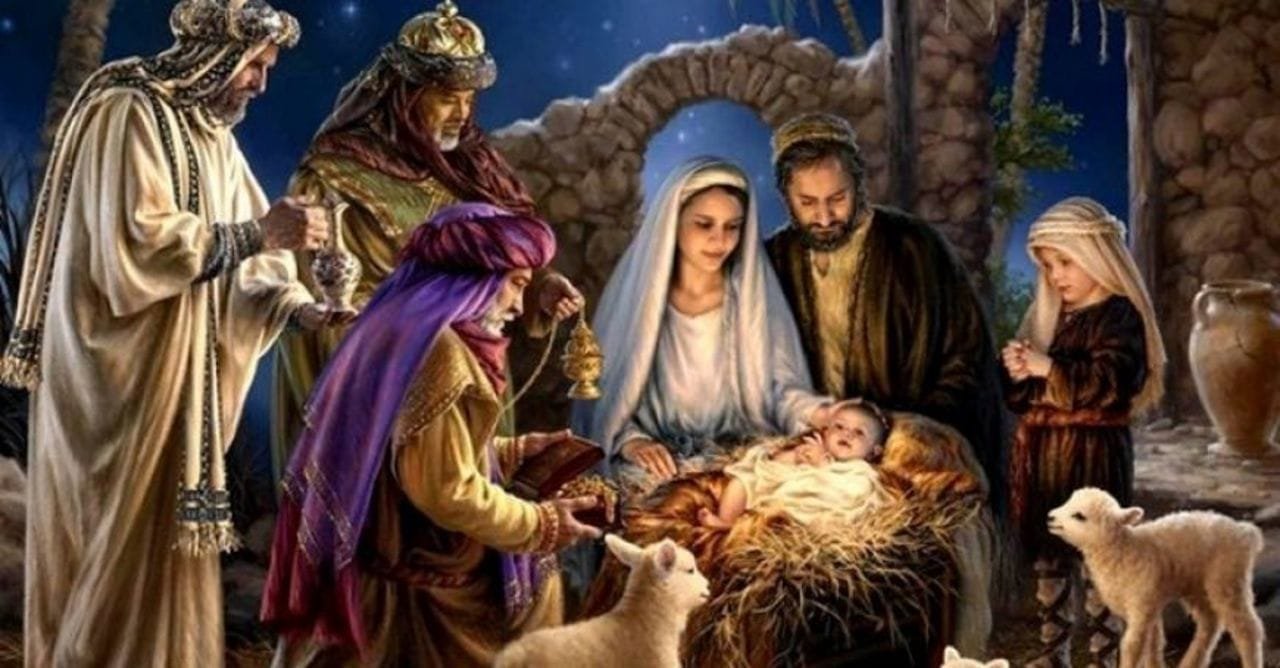‘Tis the Season to Teach Children Theology

Because of the focus of Christmas on children, the Christmas season presents a perfect opportunity to teach children theology. Some Christians believe theology is only for adults or is too intellectual for children. Theology at its simplest is thinking about God, which means theology is for everyone, including children. Christmas presents an opportunity to help children think about God and especially about the Nativity, the Incarnation, and love.
Many people seem to believe that theology is too theoretical and intellectual and so is not a study for most people, children least of all. Such a view of theology is too limiting. If our theology is based on the Word of God, and the Word is “quick and powerful, and sharper than any two-edged sword, piercing even to the dividing asunder of soul and spirit” (Heb. 4:12), we should expect theology based on the Bible to be just as quick and powerful. In fact, theology is “the study of God.” Since everyone studies or thinks about God at some point – through Bible studies, history, or knowing God better – everyone is a theologian. This includes children, who often think about God. Studying theology helps us to be more accurate in how we think about God
Perhaps more than any occasion, Christmas presents parents an opportunity to talk about God to their children. Many Christmas festivities focus primarily on children, whether through Christmas musicals, gift-giving, Santa Claus, decorating, baking, and reading the story of the birth of Jesus. Children naturally relate to the Christ of the Nativity because of His being a babe in a manger. Parents should be aware of these connections and use them to discuss theological subjects with them. Three such areas they can discuss include the Nativity, the Incarnation of Christ, and the meaning of love.
The Nativity is perhaps the most obvious way that people can teach theology to children at Christmas. Most Christian households have a Nativity scene and read the Nativity story in the Bible. Nativity means birth, and most people talk to children about Christmas being the birthday of Jesus. When I used to teach my children the Nativity, I divided the birth stories in Matthew and Luke into 15 different sections, which we covered roughly every other day in December. This allowed us to miss several days over the month when we had other events to go to. The Nativity includes, not only the biblical events of how Christ was born, but the doctrine of the virgin birth, which parents can address with young children by discussing the purity, faith, and obedience of Mary. It also includes the angels, wise men, and shepherds, as well as prophecies such as Isaiah 9:6 (“Unto us a child is born”).
Another theological subject often taught during the Christmas season is the Incarnation, that is, the embodiment and appearance of God as the person of Jesus Christ. This includes subjects such as the Trinity, Christology, the Word, and the Kenosis (i.e., emptying of divinity – Phil. 2:5-7). This also is a lesson of the Nativity – Jesus coming as God in the flesh. Reading the prologue of John’s Gospel describes these concepts. Perhaps the best way of illustrating this to children is through the observance of the Feast of Dedication (Hanukkah). Although some Christians may object to celebrating a Jewish holiday that originated outside of the Old Testament, we should recall that Jesus celebrated it (Jn. 10:22). The concepts of light and darkness is a perfect vehicle for teaching children the coming of Christ as the light of the world using verses such as 1 John 1:5-6 or John 9:4-5. The same can also be done through Advent Candles.
A final theological topic often taught to children during Christmas is the nature of love and giving. One of the central propositions of Christianity is “This is love: not that we loved God, but that he loved us and sent his Son as an atoning sacrifice for our sins” (1 Jn. 4:10). Understanding agape love as self-sacrificing love is critical to understanding how to love others. There is a natural tendency for children to focus on what they get for Christmas. The way that some parents talk about Santa Claus often exacerbates this tendency. A better way is to talk about St. Nicholas and the spirit of giving. For example, parents can get their children involved in playing “secret Santa” with someone who is less fortunate. They can help them to focus on giving gifts to others and seeing their joy. Most of all, they can help them understand that true love means sacrificing for them, as Jesus died for us.
Christmas is the perfect time of year to talk about theology to children. They can do this by talking about the Nativity, about the Incarnation of Christ as the light of the world, and by showing them what true love and giving are. Too many think of theology as being too highbrow instead of recognizing that everyone is a theologian because everyone thinks about God, including children. In this Christmas season, teach your children about theology and Christ and lay the foundations for faith.






